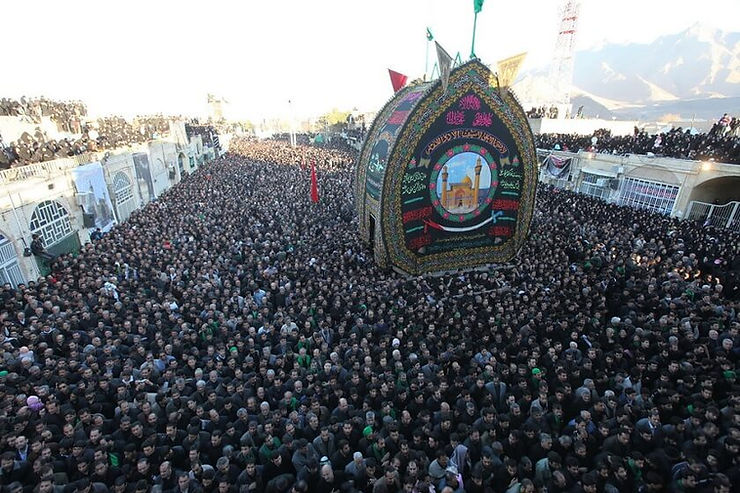By: Hannah Zhang
Throughout Iran this month, the customary Ashura rituals are gradually evolving into protests. During one such assembly, a gathering of men clothed in black attire rhythmically strike their chests in unison, a deeply rooted practice in Shiite Islam’s holiest tradition.
Ashura is a day of commemoration in Islam, held on the 10th of the first month of the Islamic calendar, Muharram. It is associated with many religious events of ancient history, including the execution of Imam Hussein in 680 AD. His small army was tragically annihilated when confronting the formidable forces of the self-proclaimed “corrupt and unjust” caliph, Yazid, whom he dared to challenge. This pivotal event marks the catalyst for these protests.
An illustrative instance of this transformation involves participants forsaking traditional expressions of grief and instead shouting “Iran! Iran! Iran!” as reported by the New York Times. During these gatherings, a vocalist named Ibrahim Nassrollahi passionately sings about the government’s disregard for the plight of its citizens, highlighting issues like bloodshed, poverty, and misappropriation of public funds, all while being fixated solely on matters like the hijab. Other men join in, amplifying these sentiments, as evident in various videos.
They sing, “For a city ravaged, for the oppressed among us, for grieving mothers, for the tears of those marginalized. We mourn the loss of countless innocent lives, deeply ashamed of this ferocious blaze. Oh rain, oh storm, come. Our sanctuary has been engulfed in flames.”
As previously mentioned, Ashura is a day of mourning. Regrettably, Iraqi Shiites were prohibited from publicly expressing their sorrow by their leader, Saddam Hussein, and a similar ban was enforced by the Taliban in Afghanistan.
Today, as asserted by the New York Times, the once staunch support base of devoutly religious Iranians has undergone a significant transformation. They now lead a rebellion challenging the legitimacy of the theocracy that has anointed itself as the “global spiritual leader of Shiite Muslims.” This shift in dynamics marks a profound change in Iran’s societal and political landscapes.











